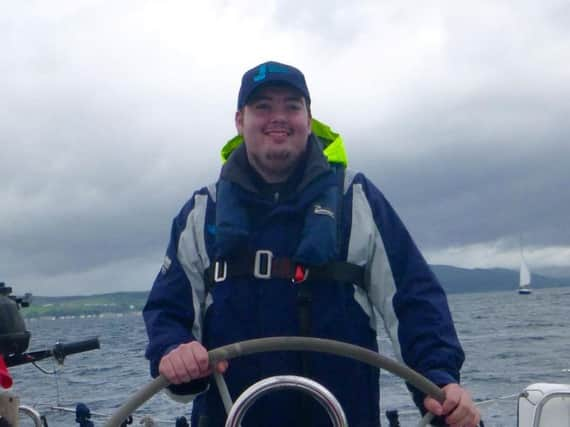Coroner to rule on tragic death of 22-year-old Sunderland cancer sufferer from chest infection


Twenty-two-year-old Daniel James Homer was just 22 years old when his condition rapidly deteriorated after fighting acute lymphoblastic leukemia (ALL), an inquest at Sunderland Civic Centre heard.
Daniel was first diagnosed with the condition four years before his death on February 28, last year.
Advertisement
Hide AdAdvertisement
Hide AdHis death came as a shock to his parents David and Mary and younger brother Jack, who donated his stem cells to help his brother when his condition relapsed.
However, despite the transplant, Daniel's leukemia was still present and continued to develop.
He also developed graft-versus-host disease (GvHD), a condition that can occur after a stem-cell transplant, in which the patient's own white blood cells attack the body.
Sunderland Senior Coroner Derek Winter heard Daniel was admitted to hospital on February 26 after unexpectedly taking a turn for the worse.
Advertisement
Hide AdAdvertisement
Hide AdHis parents had called the hospital two days previously, on the Friday, however, staff at Newcastle's Freeman Hospital had not seen the need for him to be admitted, the inquest was told, something that his parents take issue with.
He was treated with antibiotics, but the GvHD left his body weakened, the inquest heard, and he died two days later.
Home Office Pathologist Dr Jennifer Bolton said Daniel died as a result of multi-organ failure caused by a chest infection, due toacute lymphoblastic leukemia and with GvHD as a contributory factor.
Dad David said: “I nursed Daniel for the last 18 months of his life and I’ve seen him become more debilitated.
Advertisement
Hide AdAdvertisement
Hide Ad“He walked with a stick. He couldn’t straighten his arms. It was incredibly harrowing.
“He couldn’t get up the stairs by himself and had a zimmer frame.
“He never complained. He only cried twice in four years. First, when he was told he had leukaemia and the second time, when he was told he had relapsed, then he cried.”
David said Daniel had been incredibly courageous, coping with the debilitating effects of the GvHD, which included muscle wasting, skin and organ problems.
Advertisement
Hide AdAdvertisement
Hide AdHe said: "Daniel said I don’t want leukemia anymore, I will put up with the graft-versus-host disease."
Professor Matthew Collin, a consultant hematologist at Newcastle Hospitals said Daniel suffered from "high-risk" ALL, because he had a number of genetic abnormalities, including the presence of the Philadelphia Gene.
Prof Collin said that because Daniel had relapsed after the initial round of treatment, the only had a 10% chance of survival.
"He was between a rock and a hard place, and by that I mean the leukemia and the graft-versus-host disease.
Advertisement
Hide AdAdvertisement
Hide Ad"He was a very courageous young man who went through very aggressive medical treatment with great fortitude."
Prof Collin's colleague, Professor Graham Jackson said Daniel's condition was such that he could have died at any time, something that came as a shock to his parents, who said they had not been informed of this fact.
He said: "If it hadn't happened on that Sunday, it would have happened in the next new weeks.
"Death from infection is something that always happens with this level of leukemia."
The inquest is set to hear formal evidence from Daniel's parents today.